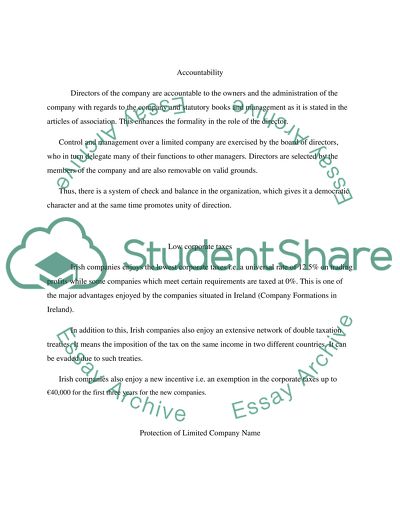Cite this document
(Registration as a Private Limited Company in Ireland Case Study - 9, n.d.)
Registration as a Private Limited Company in Ireland Case Study - 9. Retrieved from https://studentshare.org/law/1565815-business-law
Registration as a Private Limited Company in Ireland Case Study - 9. Retrieved from https://studentshare.org/law/1565815-business-law
(Registration As a Private Limited Company in Ireland Case Study - 9)
Registration As a Private Limited Company in Ireland Case Study - 9. https://studentshare.org/law/1565815-business-law.
Registration As a Private Limited Company in Ireland Case Study - 9. https://studentshare.org/law/1565815-business-law.
“Registration As a Private Limited Company in Ireland Case Study - 9”, n.d. https://studentshare.org/law/1565815-business-law.


